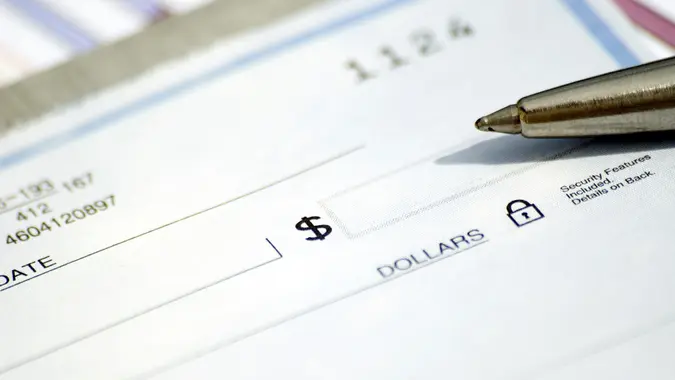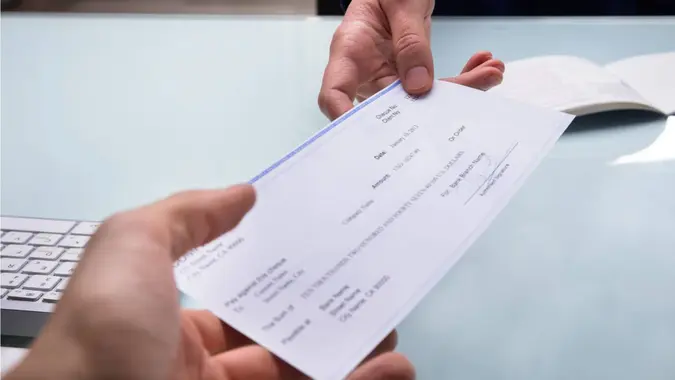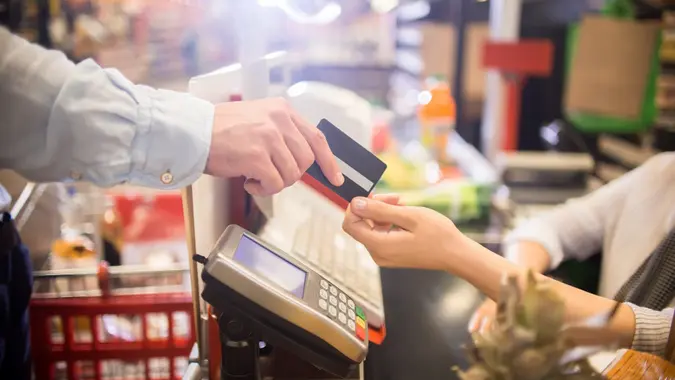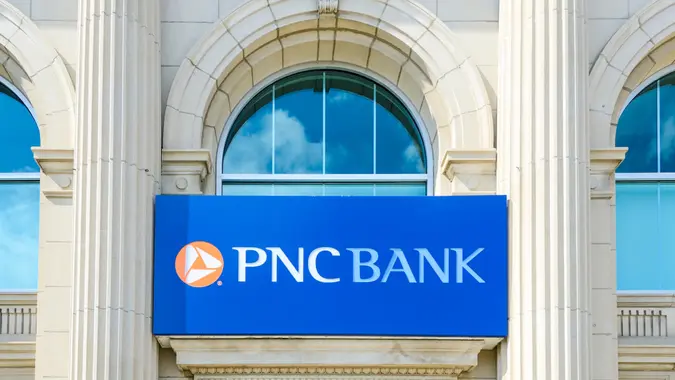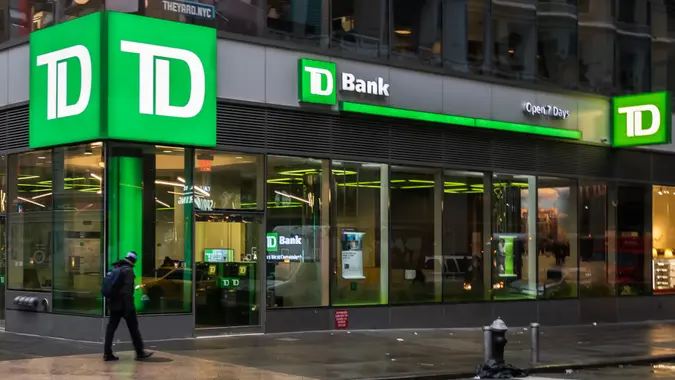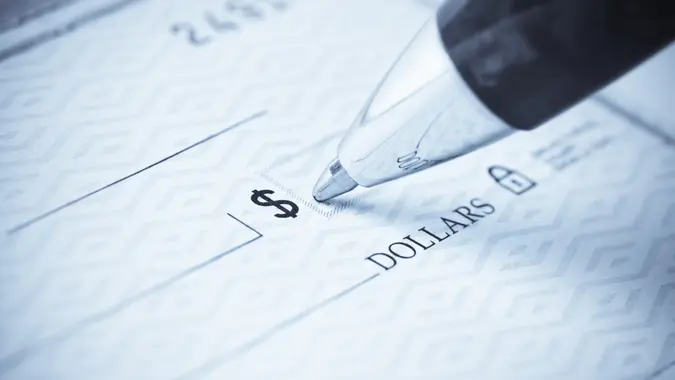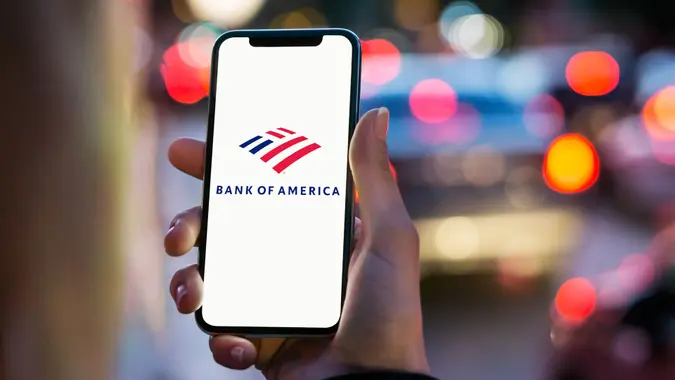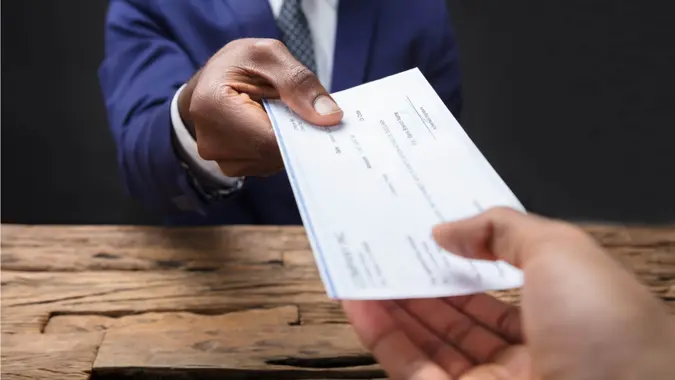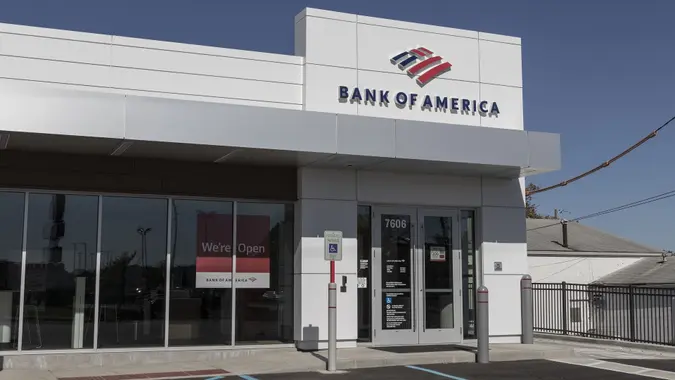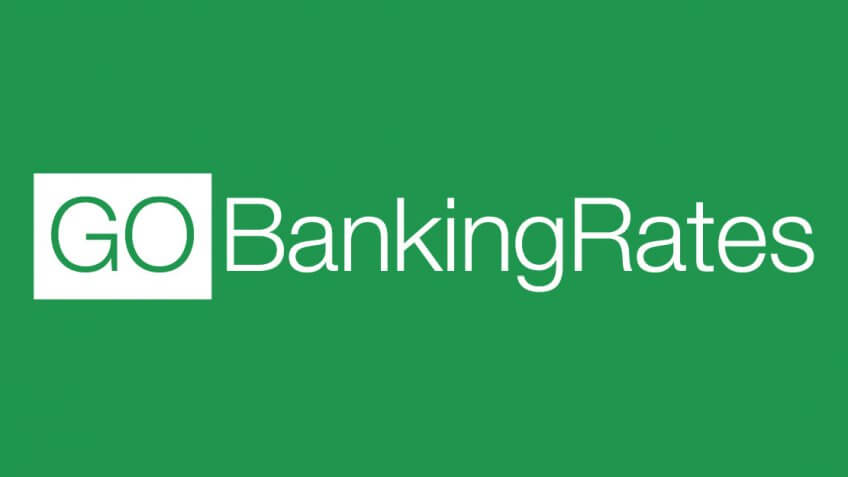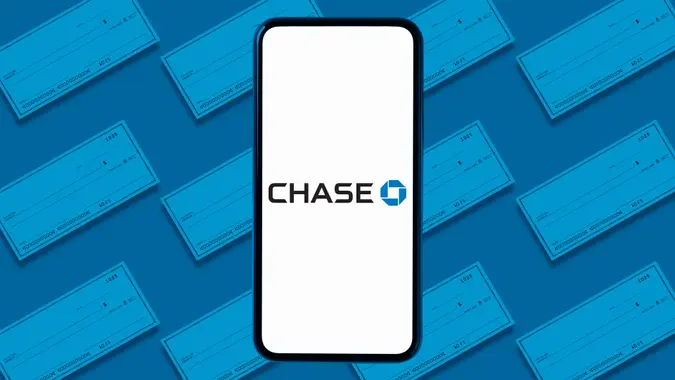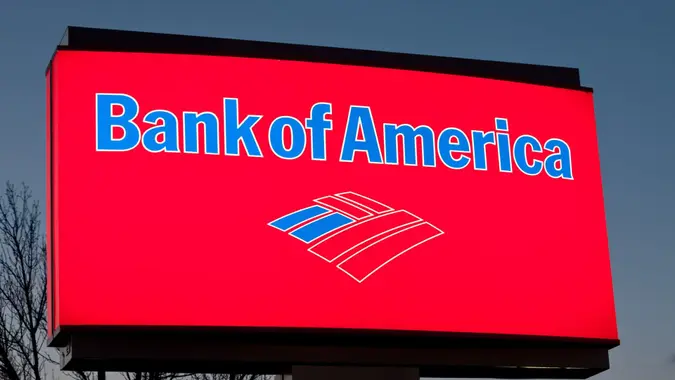CVS Money Order: How Much Will It Cost You?

Commitment to Our Readers
GOBankingRates' editorial team is committed to bringing you unbiased reviews and information. We use data-driven methodologies to evaluate financial products and services - our reviews and ratings are not influenced by advertisers. You can read more about our editorial guidelines and our products and services review methodology.

20 Years
Helping You Live Richer

Reviewed
by Experts

Trusted by
Millions of Readers
Do you need to make a quick, secure transaction without a debit or credit card? You could write a personal check — but what if you don’t have checks or don’t want to use one? You need a money order.
Money orders are a dependable option to cash or checks. If your local post office, bank, or credit union is closed, you can visit your nearest CVS. Along with money orders, CVS provides a range of financial services, including ATM access, bill payment options, and prepaid debit cards.
Explore this guide to learn more about a CVS money order.
Does CVS Do Money Orders?
Yes, CVS offers money orders. Other places offer money orders as well, including post offices, banks, credit unions and check-cashing locations, as well as pharmacies. Since there are over 9,000 CVS locations across the country, getting a money order, especially when your bank is closed is convenient. Most CVS locations are open seven days a week with extended hours.
By offering financial services like money orders, CVS enhances its role as a one-stop shop for everyday needs, attracting a broader customer base and improving customer convenience.
How Much Are Money Orders at CVS?
CVS doesn’t currently list the cost of a money order on its website. However, according to third-party sources, the fee is $1.25, with a maximum amount per money order of $500. This is slightly lower than the fee charged by the U.S. Postal Service, which is $2 for orders up to $500 and $2.90 for orders up to $1,000.
How Do You Fill Out a Money Order from CVS?
It’s easy to fill out a money order from CVS. Follow these steps to get a money order from CVS:
Have Your Money Ready
A money order is a product purchased from a provider like MoneyGram — it doesn’t pull funds directly from your checking account.
You’ll need the following:
- Full amount: You will need the full amount in cash. A money order from CVS can be paid with cash only.
- Fee: Bring the $1.25 fee to pay for your money order.
Fill Out the Money Order Amount and Recipient Information
To keep your money order safe, fill out all the information about the dollar amount and the payee immediately. Use the recipient’s legal name or business name to avoid any confusion when the money order is being cashed.
Fill Out the Purchaser’s Address Section
As the purchaser, you will need to fill in your address information. You won’t have to include your bank information, as you’re paying upfront for the money order.
Sign the Front of the Money Order
You might be tempted to sign the back of the money order, but that’s where the recipient signs. Sign your name on the front of the money order instead. There’s a line that indicates where to sign. Look for the words “Purchaser/Signer for Drawer.”
Keep the Receipts for Your Reference
Once the money order is filled out and paid for, you’ll get a receipt. Be sure to hold on to your receipt until you know the payment has been received by the payee. You can use it to prove that you made the payment in case the money order gets lost.
Common Mistakes To Avoid When Filling Out a Money Order
- Leaving the “Pay to the Order” blank: Fill out your money order immediately to avoid theft or fraud.
- Not Keeping the receipt: Keep your money order number in case it’s lost or stolen.
- Writing incorrect information: Writing the wrong information can lead to delays.
- Forgetting to sign the money order: Signatures are required to validate the money order.
Does CVS Cash Money Orders?
You can’t cash money orders at CVS, but you can cash a money order at a check-cashing store or some grocery stores with proper ID. Depending on the location, you might be charged a fee for cashing a money order. You can also deposit the money order at your bank or credit union.
Tracking a Money Order from CVS
What if you want to track your money order? If you want to track your money order, follow these steps:
- Identify the money order provider: If you purchased your money order from CVS, you likely used MoneyGram. You will use MoneyGram to track your order.
- Locate your receipt: You will need the money order number, the amount and the date of purchase to track your money order.
- Visit MoneyGram’s tracking tool. Access “Track Your Transfer” on the website. Fill out the requested information.
- Check the status: Once the information is entered, MoneyGram will display whether the money order is outstanding or has been cashed.
If your money order is lost or stolen, you’ll need to use the “Request a Replacement” tab on the website. It may take up to 10 business days to process.
Alternative Financial Services at CVS
CVS not only offers money orders, but also other alternative financial services.
Check out these services:
- ATM access: Withdraw cash at in-store ATMs, some of which may be surcharge-free for select bank networks.
- Bill payment services: Pay utility, phone, or other bills through third-party providers like MoneyGram.
- Prepaid debit cards: Purchase and reload cards like Green Dot and Netspend for easy, cashless transactions.
- Gift cards: A wide selection of retailer, restaurant, entertainment, and prepaid Visa/Mastercard gift cards.
- Cash back at checkout: Get cash back of up to $35 with debit card purchases at the register.
- Check to prepaid card loading: Use payroll or government checks to fund prepaid debit cards available at CVS.
Where To Get Money Orders If Not at CVS
CVS isn’t the only large-scale retailer that offers money orders. You can also buy a money order at most Walmart locations, with a maximum fee of $1 and a limit of $1,000 per order. Walgreens doesn’t sell money orders, but you can get a money transfer at Walgreens via Western Union.
Western Union typically charges $1 for money orders and there’s a limit of $1,000. Another option to buy money orders is the United States Postal Service (USPS). The charge for money orders is $2.35 for amounts under $500 and $3.40 for amounts from $500.01 to $1,000.
How To Purchase a Money Order
It’s not difficult to purchase money orders whether it’s at CVS or another location. Here are the steps:
- Choose a purchase location. You can purchase a money order at USPS, grocery stores, retailers and pharmacies. Weigh convenience and fees before deciding on a specific location.
- Prepare the necessary information. Have the recipient’s name handy, as well as the account details especially if it is for a bill.
- Select a form of payment. Typically money orders can be paid with cash or debit cards. Credit cards are not an acceptable form of payment for a money order.
- Purchase the money order. Specify the amount you want and be prepared to pay a nominal fee.
- Fill out the money order immediately. Do not wait to fill out the details of the money order including the amount, the recipient, and your information. Don’t forget to sign the money order.
- Keep the receipt. Your receipt is proof of purchase for the money order.
Final Take
CVS plays a convenient role in financial services. When traditional options like banks, credit unions and check cashing locations are closed, CVS can not only provide money orders, but ATM access, prepaid debit cards and bill payment services.
Other places like USPS and Western Union also offer the ability to buy money orders, but you have to choose what location works best for you. CVS provides accessibility and convenience to purchase a money order, but take time to weigh all of the options so you make an informed choice.
Information is accurate as of Jan. 21, 2026.
Editorial Note: This content is not provided by any entity covered in this article. Any opinions, analyses, reviews, ratings or recommendations expressed in this article are those of the author alone and have not been reviewed, approved or otherwise endorsed by any entity named in this article.
 Written by
Written by  Edited by
Edited by 



